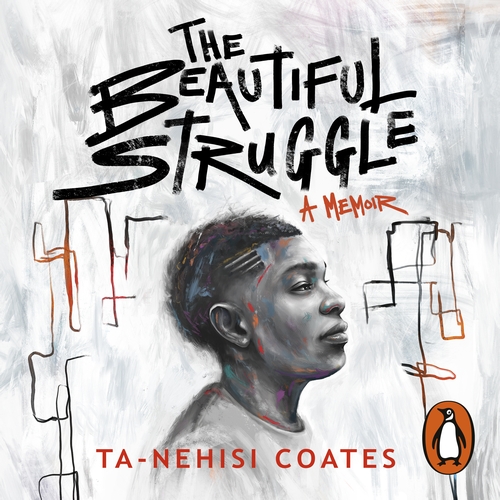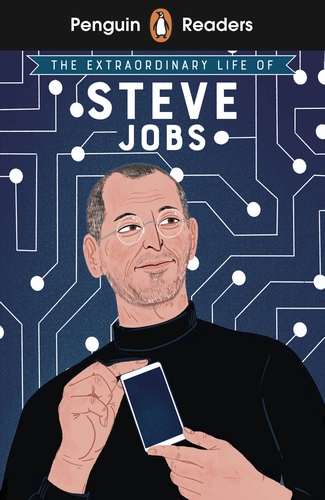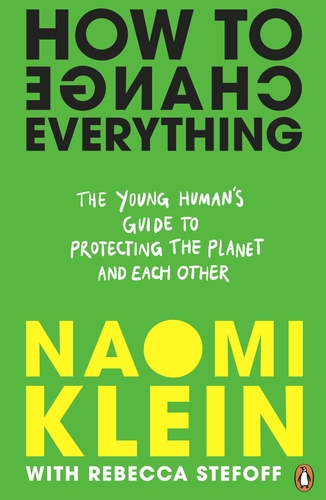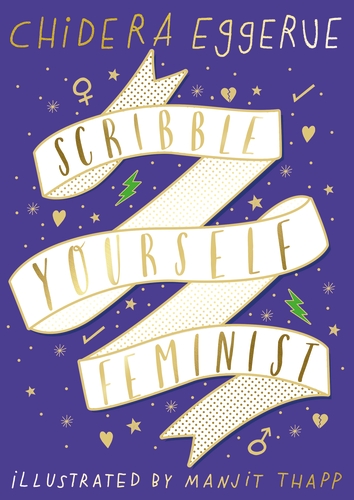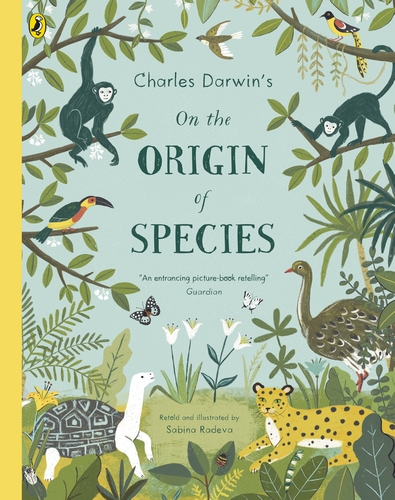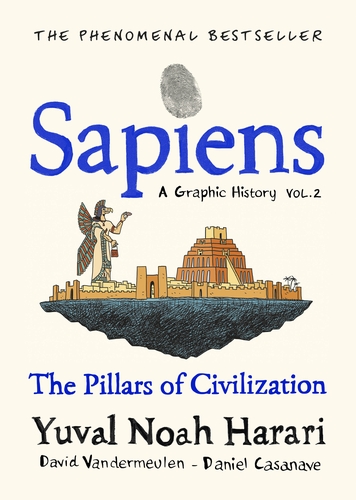Author:Stephen Greenblatt
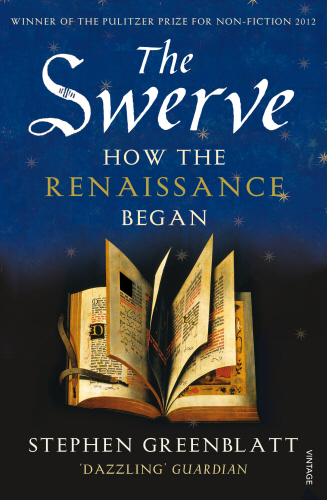
WINNER OF THE PULITZER PRIZE FOR NON-FICTION 2012
Almost six hundred years ago, a short, genial man took a very old manuscript off a library shelf. With excitement, he saw what he had discovered and ordered it copied. The book was a miraculously surviving copy of an ancient Roman philosophical epic, On the Nature of Things by Lucretius and it changed the course of history.
He found a beautiful poem of the most dangerous ideas – that the universe functioned without the aid of gods, that religious fear was damaging to human life, and that matter was made up of very small particles in eternal motion. These ideas fuelled the Renaissance, inspiring Botticelli, shaping the thoughts of Montaigne, Darwin and Einstein.
An innovative work of history by one of the world’s most celebrated scholars and a thrilling story of discovery, The Swerve details how one manuscript, plucked from a thousand years of neglect, made possible the world as we know it.
Winner of the 2011 National Book Award for Nonfiction
Superbly readable... An exciting story, and Greenblatt tells it with his customary clarity and verve
—— Robert Douglas-Fairhurst , Daily TelegraphSuperb history ... this concise, learned and fluently written book tells a remarkable story
—— Charles Nicholl , ObserverDazzling
—— GuardianIn this outstandingly constructed assessment of the birth of philosophical modernity, renowned Shakespeare scholar Greenblatt deftly transports reader to the dawn of the Renaissance...Readers from across the humanities will find this enthralling account irresistible
—— Library JournalMore wonderfully illuminating Renaissance history from a master scholar and historian (starred review)
—— Kirkus ReviewsIn this gloriously learned page-turner, both biography and intellectual history, Harvard Shakespearean scholar Greenblatt turns his attention to the front end of the Renaissance as the origin of Western culture's foundation: the free questioning of truth (starred review)
—— Publishers WeeklyThich Nhat Hanh's words are like water. Simple, pure, transparent, and absolutely indispensable for life
—— Alejandro Iñárritu, director of Birdman and The RevenantWell-written, captivating, and filled with fascinating anecdotes
—— Publishers WeeklyRichard Dawkins is a hero of mine, so being able to read about how he became the man and the thinker he is, was a particular delight for me. How his life formed from an inchoate, primordial soup and then never wavered from sound, scientific principles made for a huge page turning experience; he’s also a great writer, so that helps. Some people get their kicks from Superman’s origin story, or Batman’s origin story… or Jesus’. But for me, it was Richard Dawkins.
—— Bill MaherSkepticism and atheism do not arrive from revelation or authority. In our culture it's a slow thoughtful process. But, in the beginning there was Dawkins, moving that process along for many of us, with information and inspiration. For the modern skeptical/atheist movement, in the beginning -- there was Dawkins and he was wicked good. Appetite for Wonder shows us this beginning.
—— Penn Jillette, author of God No! and Every Day is an Atheist HolidayIt has been my good fortune to meet many of the greatest minds of our time, but standing above them all in the power of both his ideas and his rhetoric is Richard Dawkins, whose books are major publishing events because they change the conversation and the culture. In An Appetite for Wonder Dawkins turns his critical analysis inward to reveal how his mind works and what personal events and cultural forces most shaped his thinking. Destined to become a classic in the annals of science autobiography.
—— Michael Shermer, Publisher of Skeptic magazine, monthly columnist for Scientific American, and author of The Believing Brain and Why Darwin MattersRichard Dawkins is among the most eloquent scientists who has ever written for the public. His work has changed countless people’s lives, opening their minds to the wonder and beauty of science, and to the silliness of myth and superstition. But few people know Dawkins the man. How did such a man, born abroad from a family of some privilege, schooled as traditionally as any upper-class British youth, become one of the most well-known scientists in the world, and at the same time—among many of the faithful at least—among the most despised? Told with frankness and eloquence, warmth and humor, this is a fascinating story of a fascinating man who was lucky enough—for himself and the rest of the world—to fall in love with science. This is a truly entertaining and enlightening read and I recommend it to anyone who wants a better understanding of Dawkins the man and the rightful place of science in our modern world.
—— Lawrence KraussAn Appetite for Wonder feels very much like the substance of the breezy conversation you might have at a long summer dinner, if Dawkins were the guest of honor…charming, boring, brilliant, contradictory, conventional, revolutionary. We leave it perhaps not full of facts or conclusions, but with a feeling of knowing the man.
—— New York Daily NewsDawkins writes with an admirable honestly… When focusing on his area of expertise: explaining the magic contained within the natural universe and the tree of life, Dawkins proves that today he is still an extraordinary thinker, and one who has made an enormous contribution to understanding human nature. This memoir is a fascinating account of one man's attempt to find answers to some of the most difficult questions posed to mankind.
—— NPR BooksA memoir that is funny and modest, absorbing and playful. Dawkins has written a marvellous love letter to science… and for this, the book will touch scientists and science-loving persons. … an enchanting memoir to read, one that I recommend highly.
—— NPRDawkins’ style [is] clear and elegant as usual… a personal introduction to an important thinker and populariser of science. … provide[s] a superb background to the academic and social climate of postwar British research.
—— Financial TimesThe Richard Dawkins that emerges here is a far cry from the strident, abrasive caricature beloved of lazy journalists … There is no score-settling, but a generous appreciation and admiration of the qualities of others, as well as a transparent love of life, literature - and science.
—— The Independent[Here] we have the kindling of Mr. Dawkins’s curiosity, the basis for his unconventionality.
—— The New York Times DailyThis memoir is destined to be a historical document that will be ceaselessly quoted.
—— The Daily BeastSurprisingly intimate and moving. … He is here to find out what makes us tick: to cut through the nonsense to the real stuff.
—— The GuardianThis first volume of Dawkins's autobiography … comes to life when describing the competitive collaboration and excitement among the outstanding ethologists and zoologists at Oxford in the Seventies—which stimulated his most famous book, The Selfish Gene.
—— The Evening Standard…this isn’t Dawkins’s version of My Family and Other Animals. It’s the beauty of ideas that arouses his appetite for wonder: and, more especially, his relentless drive … towards the answer.
—— The TimesEnjoyable from start to finish, this exceptionally accessible book will appeal to science lovers, lovers of autobiographies-and, of course, all of Dawkins's fans, atheists and theists alike.
—— Library JournalJoseph Anton is as riveting for the small vignettes as the big, historical sweep.
—— Ginny Dougary , Financial TimesReads like a thriller...painfully true.
—— Robert McCrum , ObserverHe is compelling here...grippingly reconstructing his long years in hiding.
—— Robert Collins , Sunday Times[N]ot many Americans had heard of Rushdie until Valentines Day, 1989, when the dying Ayatollah Khomeni of Iran issued the infamous fatwa calling for Rushdie’s head... Rushdie spent most of the next decade in hiding, accompanied by armed British agents. He’s now published his account of that stranger-than-fiction time: Joseph Anton: A Memoir.
—— Kurt Andersen , Studio 360Aside from the vivid, splendidly told account of his childhood and family background, Rushdie's book charts in, fascinating, grimly humourous detail, the shadowy half-life he lived until that fatwah was lifted on March 27, 2002.
—— Paddy Kehoe , RTE Ten